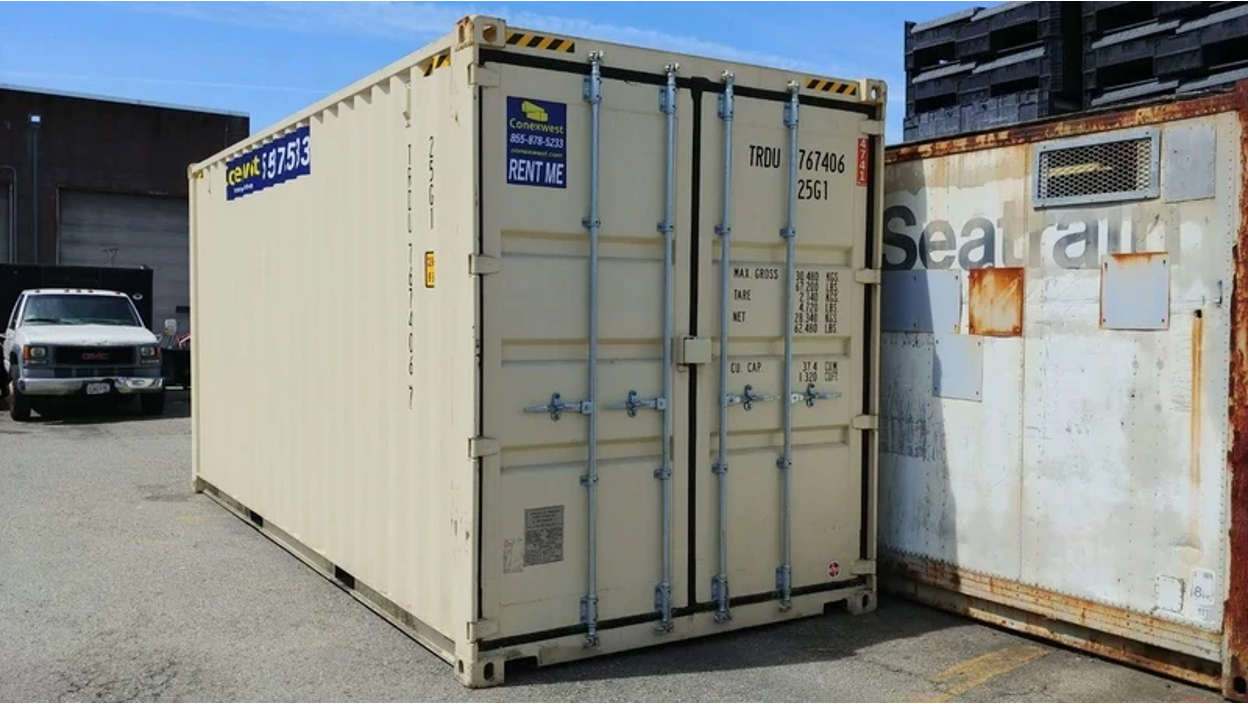New Jersey Shipping Container Zoning Laws, Permits & Building Code Requirements
Get a quoteNew Jersey Shipping Container Zoning Law, Permit & Building Code Guide
Key Takeaways
- Research local zoning laws to determine if shipping containers can be used in your area.
- Obtain necessary permits before using shipping containers for any purpose.
- Consult with your local authority to understand the municipality-specific guidelines of your area.
- Conexwest can help you comply with New Jersey’s shipping container regulations as a part of its excellent customer support.
Shipping Container Zoning Laws, Permits, & Building Code Requirements In New Jersey
Zoning Laws
Zoning laws determine where shipping containers can be placed based on land use categories such as residential, commercial, and industrial. Common restrictions include:
- Prohibition in Residential Zones: Many municipalities do not allow shipping containers in residential areas unless they are temporary for moving or construction.
- Permitted in Commercial and Industrial Zones: Containers are more leniently allowed in these zones but may require permits.
- Setback Requirements: Containers must often be set back a certain distance from property lines and public streets.
Permit Requirements
- Temporary Use Permits: Often required for short-term storage (usually under 45 days).
- Building Permits: Necessary for permanent installations or when the container is modified for habitation or business use.
- Site Plan Approval: In many cases, a site plan must be submitted for review to the local planning board.
Building Code Compliance
- Foundation and Placement: Containers must be placed on a stable surface (e.g., concrete or asphalt) and should not interfere with any existing utilities or septic systems.
- Screening Requirements: Permanent containers visible from public streets or adjacent residential properties must be screened with solid fencing or landscaping to minimize visual impact.
- Stacking Prohibition: Most ordinances prohibit stacking containers to maintain safety and aesthetic standards.
Here are examples from various municipalities in New Jersey:
Hampton Township
- Shipping containers are generally prohibited in all zones except under specific conditions, such as being placed on publicly owned property or permitted as an accessory structure through site plan approval.
- Containers can be short-term (up to 45 days) without a permit, while temporary containers (up to 225 days) require a permit.
- Permanent containers must be screened from residential areas and cannot be stacked. Only one container is allowed per property unless it exceeds 1.5 acres.
Jackson Township
- Construction containers are not allowed on public roadways or residential properties without a permit. A permit is required for placement on residential lots, valid for up to 180 days, with no fee required.
- Containers must meet setback requirements and can only be placed within 12 inches of the curb or property line if on a roadway. No more than two containers are allowed on residential properties at any given time.
- Permits can be renewed for an additional 180 days if necessary.
Conexwest, a leader in shipping and storage solutions based in Northern California, offers new, used, and refurbished containers from 10ft to 45ft, with fast delivery within 3-7 days and container fabrication options like adding shelves and locks. We serve over 10,000 customers nationwide, including prestigious clients like the U.S. Navy and Google. As an ISO 9001 and AWS-certified company, we ensure top quality and competitive pricing. |
Tips For Complying With New Jersey’s Regulations

Ensuring compliance for shipping container usage can be tricky; reach out to our experts for help
- Research Local Zoning Laws: Start by checking the zoning laws in your municipality to determine if shipping containers are permitted and under what conditions.
- Prepare Detailed Plans: Submit detailed architectural and engineering plans that comply with local building codes, including structural modifications if applicable.
- Follow Screening Requirements: If the container is visible from public streets or adjacent residential properties, install screening such as fencing or landscaping to comply with visibility regulations.
- Check Fire Safety Regulations: Maintain compliance with fire safety codes, including having a fire extinguisher nearby and adhering to distance requirements from other structures.
- Maintain Property Standards: Keep the area around the container clean and free of deterioration to meet property maintenance standards set by local authorities.
- Consult Homeowners Association (HOA) Rules: If applicable, review any HOA guidelines that may impose additional restrictions on the use of shipping containers.
- Keep Records of Permits and Correspondence: Maintain copies of all permits and communications with local authorities in case of future inquiries or inspections.
Choose Conexwest For Your Shipping Container Needs

Conexwest has a vast inventory of shipping containers with sizes ranging from 10ft to 45ft
Conexwest is your trusted provider of high-quality shipping containers. Here’s how we can help you:
- Sales of New, Used, and Refurbished Containers: We provide a variety of shipping containers, including standard, insulated, refrigerated, and modified units in sizes ranging from 10 to 45 feet.
- Custom Fabrication: Our team can modify containers to include features like windows, HVAC systems, additional doors, etc., and adapt them as per your needs.
- Nationwide Delivery: We provide delivery services across the United States so your container arrives safely and on time.
- Container Rentals: Flexible rental options are available for short-term or long-term needs.
Why Choose Conexwest for Your Shipping Container Needs
- Expert Guidance: We help you comply with New Jersey's shipping container regulations for a smooth compliance process.
- Quality Assurance: Our containers are durable and built to last, backed by strong warranties (10 years for new containers and 5 years for used containers).
- Transparent Pricing: We provide clear pricing with no hidden fees so you know exactly what to expect.
- Customer-Centric Approach: Our commitment to customer satisfaction means we’re here to support you throughout the process and beyond.
Frequently Asked Questions (FAQs)
- Do I need a permit to place a shipping container on my property in New Jersey?
Yes, in most cases, you will need a permit to place a shipping container on your property. The type of permit required depends on the intended use of the container (temporary or permanent), the location (residential or commercial), and local zoning laws.
For temporary use, such as for moving, you may only need a temporary use permit, while permanent installations require more stringent permits and compliance with building codes.
- Are there different regulations for residential and commercial properties?
Yes, regulations differ significantly between residential and commercial properties. For residential uses, containers must comply with the International Residential Code (IRC), which focuses on one- and two-family dwellings.
In contrast, commercial uses fall under the International Building Code (IBC), which has more comprehensive requirements regarding safety, accessibility, and structural integrity.
- Can I use a shipping container as a permanent residence?
Using a shipping container as a permanent residence is possible but subject to strict regulations. You will need to comply with local building codes and zoning laws, which may require permits and inspections to check if safety standards are met. Some municipalities allow container homes, while others may have restrictions or outright bans.
- What happens if I place a shipping container without proper permits?
If you place a shipping container without obtaining the necessary permits, you may face legal consequences such as fines, orders to remove the container, or other penalties imposed by local authorities.
- Are Conexwest’s containers weatherproof and durable?
Yes, our containers are constructed from high-quality corten steel, which makes them highly durable and weather-resistant. They can withstand harsh environmental conditions so your belongings remain safe and secure.
